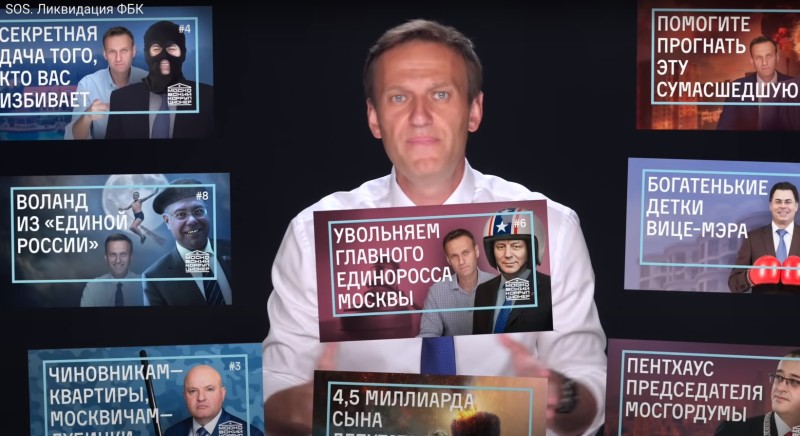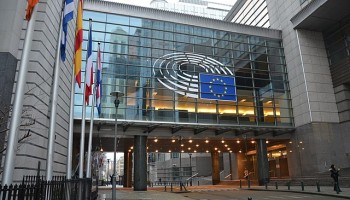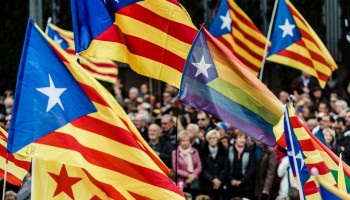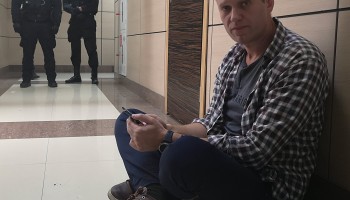If confirmed, the ruling would put the organization founded by Russia’s main opposition leader in the same league as the Islamic State.
Navalny’s Headquarters and the Citizens’ Rights Protection Organization were also part of the package, as demanded by the Moscow City Prosecutor in April this year.
“The organizations were banned from disseminating any information, performing financial transactions, as well as participating in elections and organizing activities,” Team 29 (Команда 29), a group of lawyers defending Navalny and his organizations, said.
The group, which was given a one month deadline to appeal the decision, underlined that employees of the labelled organizations and others who commit “deliberate actions related to the continuation or renewal of the activities of” those organizations face up to six years in jail.
“This is one of the Kremlin’s most cynical and brazen attempts so far to crack down on the rights to freedom of expression and association,” Amnesty International’s Moscow Office Director, Natalia Zviagina, said.
If the first-instance ruling is confirmed and Navalny’s organizations definetelly marked as “extremist,” they could be put on Russia’s National Anti-Terrorism Committee’s “Terrorist and extremist organizations and materials” list, which includes groups such as al-Qaida or ISIS.
Navalny, the incarcerated top Kremlin critic, said he is not even going to discuss the legal side of the decision made by “the laughingstock called ‘the court’ in Russia, especially about the case in which “all the materials have been declared ‘State Secret’.”
“Who cares what we are called?… We are not a name, not a piece of paper or an office, but a group of people who unite and organize those citizens of Russia who are against corruption, for fair courts and equality of all before the law,” Navalny said.
He stressed however, that the Moscow Chief Prosecutor, Denis Popov, was acting in the process on behalf of the Russian President Vladimir Putin, all in order to keep his position and maintain his way of living.
Navalny recalled an investigation called the Secret Life of a Foreign Agent, which he and his FBK released in 2019, unveiling Popov’s alleged involvement in “stealing, taking bribes and robbing citizens of Russia.”
“He invests money in villas and hotels in Spain and Montenegro… and here he walks in a blue uniform and protects the right of Putin and his officials to live like this, plundering the country and the people for the sake of their luxurious life,” Navalny said.
Amnesty International in Russia stressed that “Putin’s regime is compensating for its waning public support by creating an atmosphere of fear and despair, throwing its political rivals behind bars, forcing them out of the country and banning one after another those organizations held in disfavour by the regime.”
Natalia Zviagina warned that the Russian authorities have equated the activities of civil society organizations with serious crime, “placing tens of thousands of Navalny’s supporters at risk of prosecution.”
This has already happened to FBK’s president, Ivan Zhdanov, on Friday.
“Less than 2 days after the FBK was recognized as an extremist organization, I was put on the wanted list,” Zhdanov wrote on Instagram. “Seriously, I don’t know what this is connected with. Probably with the 10,000 criminal cases that were brought against me.”





